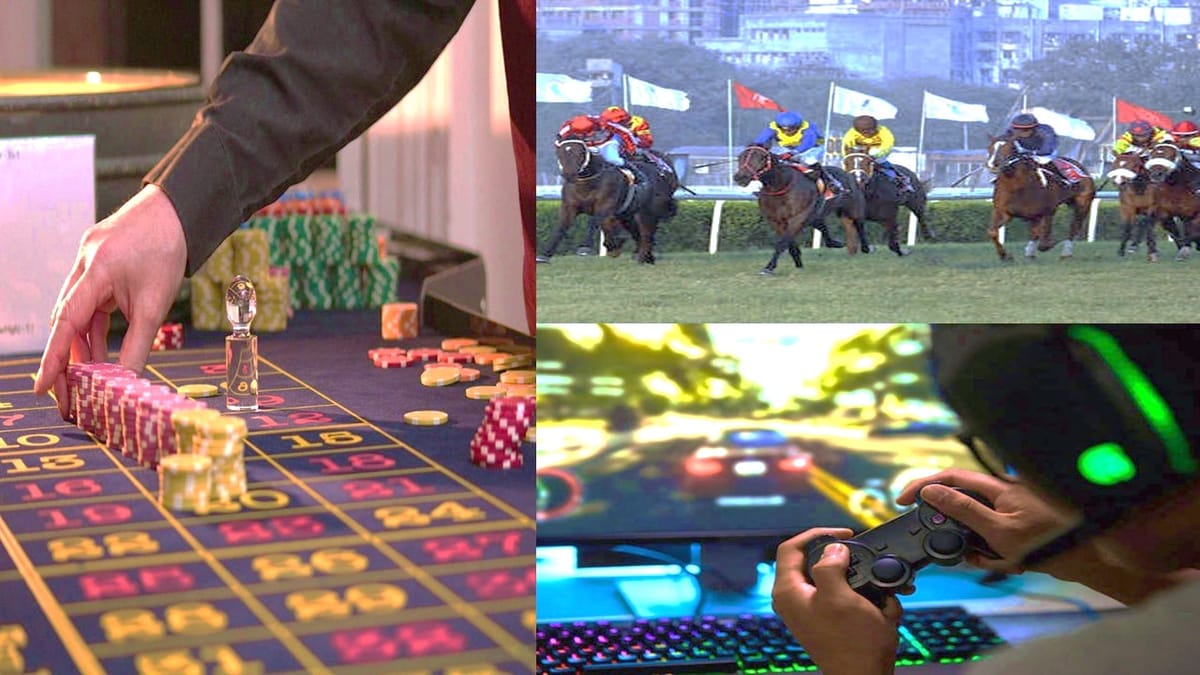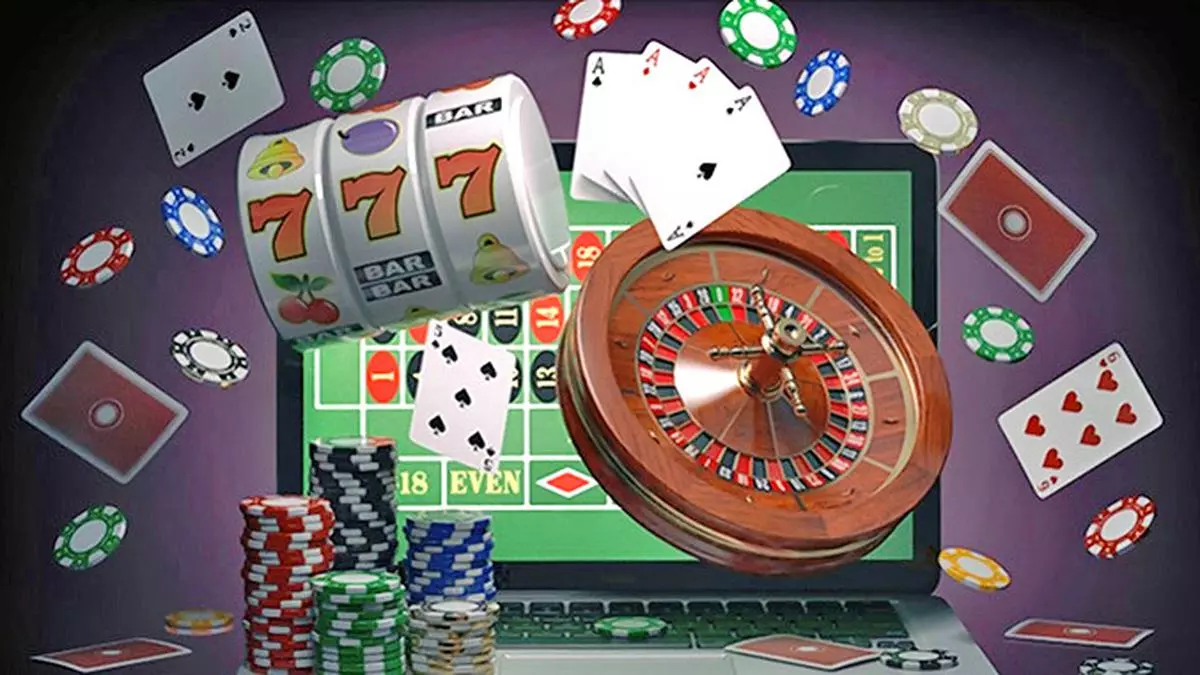28% GST On Online Gaming, Casinos, And Horce Racing- Are All Offences Acceptable As Long As Taxes Are Paid To The Government?
28% GST on Online Gaming, Casinos, and Horce Racing, Does Indian government not care about any illegal act as long as they are earning revenue from it?

28% GST on Online Gaming, Casinos, and Horce Racing
Many countries, including India, have long debated the legality of internet gaming and gambling. The Indian government has recently taken moves to legalize and regulate these activities, largely motivated by the possible financial advantages. However, using higher GST and income to justify their acceptance poses an intriguing question: Can all crimes be regarded acceptable simply because the government earns from them?
The GST Council unexpectedly agreed to levy a 28% tax on internet gaming, casinos, and horse racing, sending shockwaves throughout the country including the gaming industry. Experts in the area describe this tax rate as a death blow which could result in the extinction of businesses and considerable reductions in employment. They claim that the only people who will benefit from this judgment are illicit offshore gambling enterprises.
Finance Minister Nirmala Sitharaman, on the other hand, justified the move, claiming that it was not aimed at any single industry. She stressed that the decision was reached after speaking with every one of the members of the GST Council, which includes representatives from states such as Goa as well as Sikkim, wherein casinos play an important role in the tourism industry.
Sitharaman went on to say that uncovering the secret operations of illegal gaming platforms is difficult. She claimed that every state agreed that online gaming as well as betting deserve to be taxed at the greatest cost possible, taking into consideration its complete face value.
Revenue Secretary Sanjay Malhotra responded to legal challenges brought up by some gambling enterprises against the 28% tax on the full value by saying that the administration was going to keep litigating these issues in court. He explained that the 28% tax rate has consistently been applicable to online gambling and added that the recent decision was made to clarify and end the continuing discussion.
In the approaching monsoon session of Parliament, a change to the GST law is anticipated that will designate internet gaming, horse racing, as well as casinos as an “actionable claim,” much like lottery and gambling. Gaming companies are worried that the 28% GST will make it more difficult for them to invest in new games, have an adverse effect on their cash flows, and prevent them from growing their businesses.

Elimination of distinction between Gaming and Gambling
The decision, according to All India Gaming Federation (AIGF) CEO Roland Landers, disregards decades of established legal law by classifying online skill gaming as being on par with gambling activities. Landers cautioned that the choice might have disastrous repercussions, causing the Indian gaming industry to be completely destroyed and causing the eradication of tens of thousands of jobs. He also issued a warning that this tax would only benefit anti-national, illicit offshore sites.
Landers criticized the choice for ignoring the thorough assessments carried out by the majority of the Group of Ministers (GoM) states that argued against the adoption of such a high rate of taxation. He emphasized how the central government has previously supported the gaming sector, making the new move even more regrettable and unworkable from a legal standpoint.
The issues that the gaming business would face as a result of this significant tax burden were emphasized by Aaditya Shah, COO of IndiaPlays. He explained that the increased rate of taxation will have a direct effect on businesses’ cash flows, significantly limiting their capacity to invest in new products, advanced research, and company growth.
Additionally, Shah suggested that skill-based games and applications linked to gambling or casinos should not be handled the same way. The E-Gaming Federation (EGF), which represents companies including Games 24×7 and Junglee Games, reiterated this opinion, claiming that a high tax burden might make the online gaming sector unprofitable while unintentionally favoring illegal operators over legal taxpayers.
By citing Supreme Court as well as High Court rulings that acknowledged online skill-based games as legitimate commercial operations safeguarded by the Indian constitution, EGF emphasized the contrast between online gaming and gambling. The Federation of Indian Fantasy Sports (FIFS) voiced worry that the decision will drive people to unlicensed betting sites, increasing user risks and decreasing government revenue.
Shilpy Chaturvedi, a partner at Deloitte India, also opposed the plan to raise taxes, notably on the cost of entrance for real money games, to 28%. The essential difference between games of skill as well as games of chance, which has historically been a major factor in deciding tax rates and valuations, was also mentioned by Chaturvedi as a cause for concern.
Gaming corporations continue to express their disapproval, despite claims from several officials, including Revenue Secretary Sanjay Malhotra, that the 28% tax will not dissuade fans. They contend that the judgment will have negative repercussions for the gaming sector that will be far-reaching, will deter new competitors from joining the market, and may even push customers to unlicensed betting sites.

As a result, the choice to allow online gambling is exceedingly terrible. It disregards 60 years of legal precedent and lumps internet gaming in with gambling operations, which is quite sad. The central government has been supporting the business in terms of online gaming rules with the proposal to establish SRBs to self-regulate the industry, therefore this decision disregards the majority of GoM states and what was proposed in the study. This decision will help no one; the entire industry will be destroyed.
As pointed out above, the only players who will benefit from this are illegal offshore gambling organizations and their offers, which we have been combating for the previous 7-8 years. Consequently, the Indian SME and startup communities that have emerged in the last 10-12 years will be utterly wiped out, along with millions of job reductions. This judgment would have a wide-ranging instant impact. The consumer would have to resort to illicit offshore gambling companies, which the industry has been attempting to wean individuals away from.
Joy Bhattacharjya, Director General of the Federation of Indian Fantasy Sports (FIFS), expressed disappointment, calling the ruling unfortunate and disastrous for the industry. He also stated that it will deter foreign direct investment (FDI) in the sector. The decision to apply the 28% GST on online gaming, horse racing, and casinos was made during the GST Council’s 50th meeting in Delhi. The tax will go into force once the present laws are amended.
According to a Deloitte analysis, the industry estimates that increasing the tax burden from 18% on Gross Gaming Revenue (GGR) to 28% on Contest Entry Amount (CEA) will end up resulting in a considerable decrease in tax revenue over the first five years.
According to the research, putting the 28% GST on CEA may result in a 43-fold decrease in revenue from the industry in the fifth year of implementation, when the greater cost owing to higher taxation is fully transferred on to customers.
It is just not feasible for the operators to pay 28 percent of the face value and survive. As a result, it will be curtains for a substantial chunk of the 900 enterprises that comprise the MSME segment. Gaming is currently a $2.5 billion business that is expected to increase by 2025. So, this decision will be a spoke in that avalanche.
Industry experts have urged the GST Council as well as the government to think again about the choice they made, a move that they believe weakens India’s startup ecosystem and contradicts the government’s earlier support for the gaming industry. They underline that a lower tax rate would have been better for the industry’s growth and employment creation. The industry hopes that their concerns be addressed and that an improved advantageous tax structure is explored to promote the sector’s growth as well as sustainability.

Annual Increase in Revenue
According to Revenue Secretary Sanjay Malhotra, the GST Council’s decision to levy a 28% tax on the whole bet value of online gaming, casinos, and horse racing is likely to generate an additional INR 20,000 crore in revenue annually. He emphasized that the present rate of taxation for the online gaming business is only 2-3%, meaning it is lower than the 5% tax placed on commonly consumed food goods by the people in general.
According to Malhotra, the GST Council unanimously voted to levy a 28% tax on internet gaming, casinos, and horse racing. The government is determined to pursue all cases before the Supreme Court in order to recoup the outstanding tax obligations.
GST and Collection of taxes normalises illegal acts?
For many years, gambling and betting have been outlawed in India. However, the government subsequently announced that certain activities would be subject to a 28% GST. This has caused some consternation, since many people are perplexed as to how something unlawful might suddenly become acceptable just because the government collects taxes on it.
This is a troubling development for several reasons. For starters, it establishes a dangerous precedent. If government officials can just tax something illegal to make it acceptable, what other illegal behaviors might follow? Second, it may result in an upsurge in gambling-related problems.
By thereby rendering internet gaming and gambling simpler to access, the government is encouraging more people to participate in these kinds of activities, regardless of whether they are unaware of the dangers that are involved.
Why not tax every criminal act if the government is ready to tax unlawful activities? After all, if the government is profiting off it, it must be safe, right?
Ah, the enticement of wealth! In its great wisdom, the government has recognized the reality that there is a treasure waiting to be discovered in the expanding field of online gaming as well as gambling. They can impose GST along with additional taxes upon operators as well as participants by regulating such operations, filling their pockets with the lovely sounds of clinking coins.
However, do not forget the insignificant issues of social harm, addiction, and criminal activity that were originally presented as justifications for their illegality. Who cares about insufficient and minute details when the government’s bank accounts are being filled.
What about consumer protection? Who cares? Why be bothered with laws and consumer protection if the government reaps the benefits from them? Let us just ignore the possibility for exploitation, fraud, as well as psychological harm to vulnerable folks. After all, it is all in the spirit of fun, right?
Let us apply this line of thought to other crimes in this magical universe where funding the government through taxes justifies acceptance. Perhaps we should legalize stealing, fraud and even, rape and murder as long as the government gets something out of them. Who needs a system of justice simply because we have a continual supply of revenue coming in?
Of course, this is an absurd argument. Simply because the government collects taxes on something does not make it okay. Many illicit activities have substantial negative implications and should not be encouraged solely because the government may profit from them.

It is critical to understand that the acceptability of any action should not be evaluated exclusively by the government’s financial gain. Ethical considerations, social well-being, as well as vulnerable individuals’ safeguarding should be prioritized throughout decision-making processes.
While the keen interest of government revenue through online gaming and gambling may appear to be an appropriate explanation for its acceptance to some, it is vital to examine this argument critically. Acceptance of any activity cannot be based exclusively on financial benefit. To preserve the well-being and safety of individuals and society as a whole, it is critical to find a balance between economic gains as well as moral considerations.



